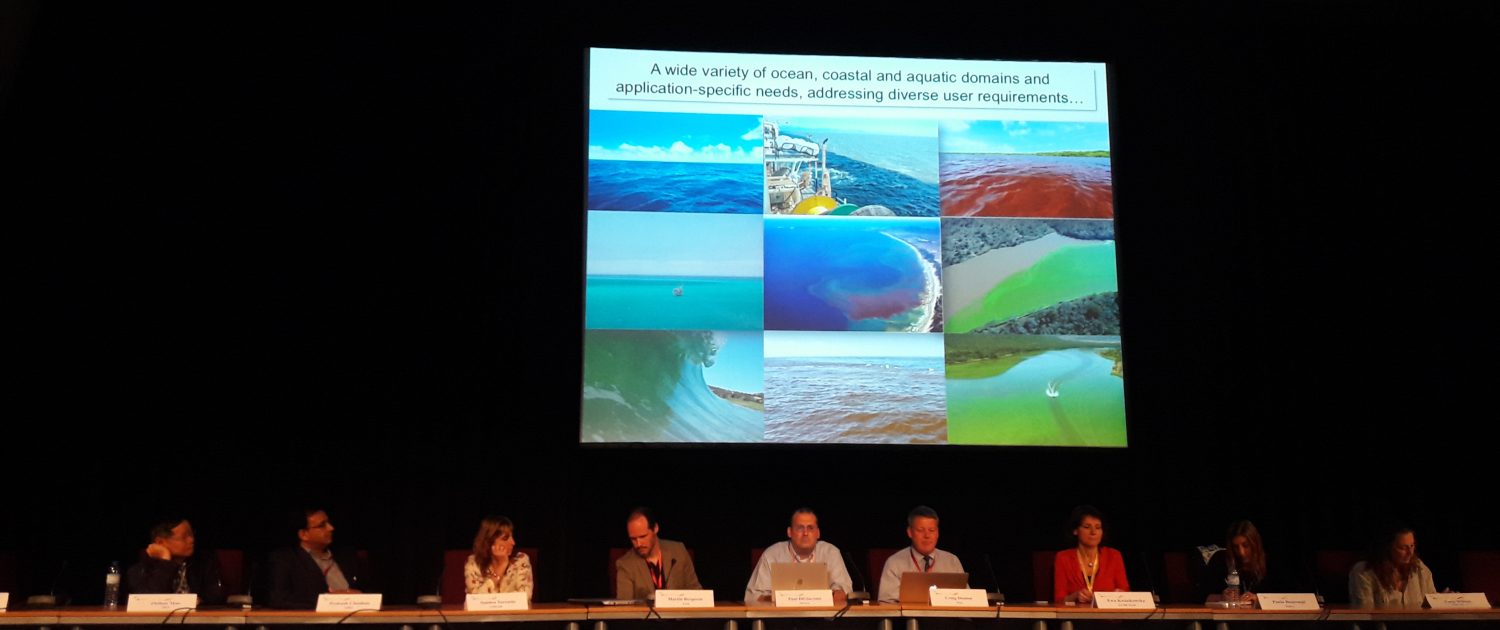
Event Report | International Ocean Colour Science Meeting

Since the launch of the NASA Coastal Zone Color Scanner (CZCS) (1978-1986), the first dedicated ocean colour satellite, ocean colour science has advanced rapidly. Data acquired by new generation satellite systems, such as the Sentinel-3 OLCI instrument (2016-present), are already being used for ocean colour at global scales. With applications ranging from fisheries and aquaculture management, implementation of EU directives (e.g. the Water Framework Directive) and supporting Sustainable Development Goal 14 (‘Life under water’), to bathing and drinking water monitoring and citizen science, to mention a few, ocean colour is applied across the world to map our oceans, coastal areas, transitional and inland waters.
This year, the Third International Ocean Colour Science (IOCS2017) Meeting took place 15-18th May in sunny and warm Lisbon, Portugal. IOCS2017 brought together numerous researchers and scientists in ocean colour, who have been working on the development of advanced methods, new products and innovative applications using remotely-sensed ocean colour data and information. The event was attended by approximately 350 people from around the world, including US, Canada, Argentina, China, South Korea, Australia, New Zealand, South Africa, and various European countries. IOCS2017 consisted of four full days of keynote speeches, poster sessions, and breakout workshops, where recommendations were gathered for various fields in ocean colour science, such as hyperspectral measurements, multi-algorithm development, atmospheric correction, and others. This long list of recommendations was then shared and discussed at a plenary session with International Space Agencies that concluded the meeting and was facilitated by the International Ocean-Colour Coordinating Group (IOCCG). For more information on this and future events, visit here IOCS IOCCG website: http://iocs.ioccg.org/
Events like IOCS2017 promote science that aims to advance our knowledge of the oceans. With the World Oceans Day approaching (Thursday 8th June; https://www.unworldoceansday.org/), the work of the ocean colour community and IOCCG can help raise awareness on issues pertaining to the sustainable use of our oceans. #OnePlanetOneOcean
Attendance to IOCS2017 was primarily supported by the Marine Institute under the Marine Research Programme with the support of the Irish Government, as well as EU H2020 Co-ReSyF (http://co-resyf.eu/) and ESA Coastal-TEP (https://coastal-tep.eo.esa.int/portal).




